
Established in 2013 as the RAIC Moriyama Prize, the RAIC International Prize was created based on the belief of Canadian architect Raymond Moriyama that remarkable architecture has the power to transform society by promoting humanistic values of social equality, respect, and inclusiveness. It aims to create environments that contribute to the well-being of all people.
In 2023, the RAIC International Prize evolved to reflect the broader mission, vision, and values of the RAIC. This evolution introduced an annual thematic focus, emphasizing contemporary and critical issues in architecture.
The RAIC International Prize honours the belief that exceptional architecture can transform society by promoting humanistic values such as social equity, respect, and inclusiveness, and by creating environments for the well-being of all people.
The prize recognizes international architects, practices, and organizations beyond Canada that exemplify the RAIC’s values of integrity, climate action, reconciliation, social justice, and innovation. Through this initiative, the RAIC seeks to elevate exemplary global practices within an identified annual theme of relevance within Canada’s architectural community.
In recognition of the pressing planetary urgency of climate change and the RAIC’s Resolution for Urgent and Sustained Action on Climate and Ecological Health and the RAIC Climate Action Plan, the 2025 theme for the RAIC International Prize is Climate Action. The 2025 Prize seeks to recognize an architect, a practice or an architecturally focused group that exemplifies design excellence in climate action and regenerative development and design. Exemplars will demonstrate new precedents and innovative approaches to strengthening ecosystem and human health for present and future generations.
This year’s award recipient and honourable mentions demonstrate exemplary practice following the award criteria for the 2025 theme:
Climate-responsive design, including:
- Futures-thinking and project outcomes that strengthen the resilience of built forms, communities, and ecosystems to a changing climate while concurrently modelling deep whole-life carbon emissions reduction.
- New models of cyclical material, energy, and conceptual flows that offer deep reductions in carbon across the full life cycle of projects, carbon removal and sequestration, and other innovations in climate-responsive design.
Regenerative development and design, including:
- Enabling the inherent and emerging potential of living systems, including social and ecological systems.
- Design for living systems and planetary health that reflect an understanding of place, culture, holistic ecologies, planetary boundaries, and safeguarding biodiversity.
Written by: Mona Lemoine, Joanne Perdue, Jason Robbins
2025 Theme: Climate Action
Architecture plays a critical role in inspiring meaningful action on global climate issues. The RAIC International Prize’s 2025 theme, Climate Action, aims to spotlight an architect, practice, group or project that exemplifies design excellence in addressing the climate crisis. This theme aligns with the RAIC’s broader climate action commitments, including its Climate Action Plan and strategic initiatives aimed at reducing the carbon footprint of the built environment.
The 2025 Selection Committee
The 2025 selection committee, chaired by RAIC Immediate Past President Jason Robbins, includes a distinguished group of design and industry professionals from around the globe. This diverse group, comprised of subject-matter experts on the Prize’s theme of the year, reflects the international scope and ambition of the prize, ensuring a robust and insightful selection process. The selection committee brings forth names of people/ projects/ architecturally focused group outside of Canada and will then research, review and select a final recipient to receive the award.
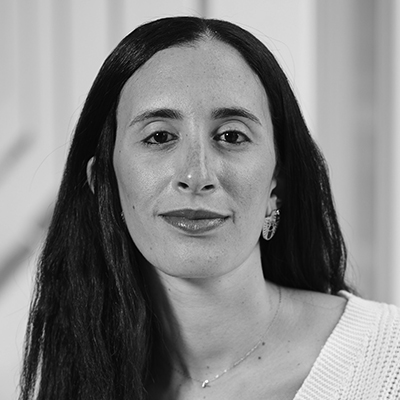
Afaf Azzouz
Afaf is a Senior Manager in Deloitte’s Sustainability & Climate practice. She is a Professional Engineer, a Building Energy Modeling Professional (BEMP) and has a Masters’ degree in Sustainable Engineering. She has also recently won four (4) awards acknowledging her efforts, including from Clean50, AEE and the CaGBC. She is also 1 of 10 Energy Trailblazers selected by Efficiency Canada in 2024. At Deloitte, Afaf leads the Net-Zero Implementation service offering and has been focusing on sustainable real estate, building technology assessments/modelling, low-carbon construction materials, ESG strategy (materiality assessments etc.), GHG inventories, decarbonization strategy and GHG scenario modelling and her engineering expertise comprises net-zero, sustainability, whole-life carbon, lifecycle costing assessments and building performance. Prior to Deloitte, Afaf led the Carbon Impact team in Quebec and Ontario at Stantec Consulting. As an engineer, she has been involved in the design, implementation and performance measurement of hundreds of buildings across Canada.
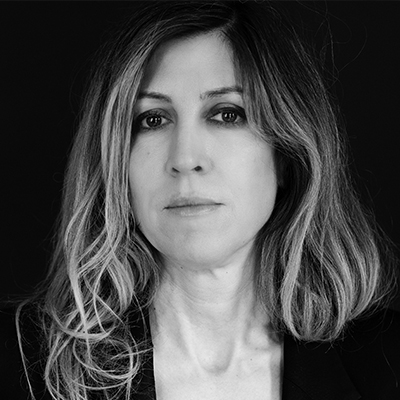
Harriet Harriss
Dr. Harriet Harriss, (ARB, RIBA, (Assoc.)AIA, PFHEA, FRSA, Ph.D) is a full-time, tenured professor at Pratt Institute, having previously served as the Dean of the School of Architecture.An award-winning writer, educator, and UK-qualified architect, Dr. Harriss has established an international reputation for social justice and climate crisis pedagogy and curriculum design and for pioneering interdisciplinary pedagogies informed by avant-garde thinking that draws upon feminist, and decolonization theories to advance diversity, equity, and inclusion pedagogies, policies and professional practices.
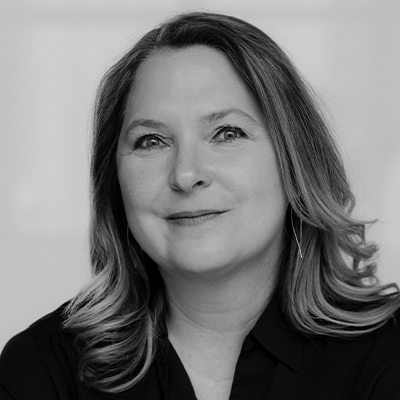
Mona Lemoine
Mona is a registered architect and sustainability consultant with twenty-five years of experience focused on practice, advocacy and education in the built environment. She is an associate, senior sustainability consultant and chair of DIALOG’s practice-wide Green Practice Roundtable. She is committed to weaving resilience, equity, health, and biodiversity considerations into projects, while remaining focused on lowering carbon emissions through material performance, circular economy, and regenerative design and development. Mona is Co-Chair, RAIC Committee on Regenerative Environments (CORE). She has also served a leadership role on a number of professional committees with the RAIC, CAGBC, USGBC, CMHC, and City of Vancouver as well as a number of community leadership roles.
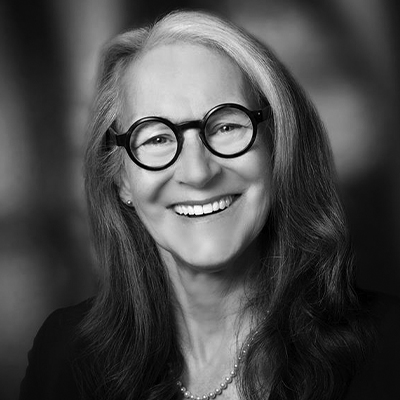
Joanne Perdue
Joanne Perdue BArch, MA, Architect AAA, FRAIC, LEED Fellow is an architect, organizational strategist, and change leader with over thirty years of experience advancing design and practice for planetary health and regenerative futures. As the Associate Vice President for Sustainability at the University of Calgary (2012-2024), her leadership was instrumental in the university achieving a top 5% global ranking for advancing the UN Sustainable Development Goals and being designated as the UN Sustainable Development Solutions Network host institution for Canada. A registered architect since 1991, her leadership in sustainability, regenerative design, and climate action has been widely recognized. She has been honoured with a Canada Green Building Council (CAGBC) Lifetime Achievement Award, a US Green Building Council LEED Fellow designation, a Canada Clean50 award, and an RAIC Fellowship. A former board member of the CAGBC, Joanne is currently conducting research on climate change and resilience in built environments and co-chairs the RAIC Committee on Regenerative Environments.

Jason Robbins, FRAIC
Jason Robbins is a Lead Architect at AECOM Canada where he specializes in National Defence and Public Safety projects. He is interested in the stories a building’s details tell us - about the architect who designed them, and its place in the community. He believes architecture is an active presence in our daily lives. Jason has spent the entirety of his career advocating for good design and architecture in our built environment. He is a founding board member of Storefront Manitoba, a non-profit organization that advances public awareness and the appreciation of architecture, design and the built environment in Manitoba, and has volunteered on the RAIC board since 2017. As RAIC Immediate Past President, Jason will continue to support the RAIC’s vision of a div architectural community that is valued and empowered to create change, as well as support our members in their pursuit of design excellence. Jason has a background in theatre and film. He studied marketing & communications before going to architecture school.
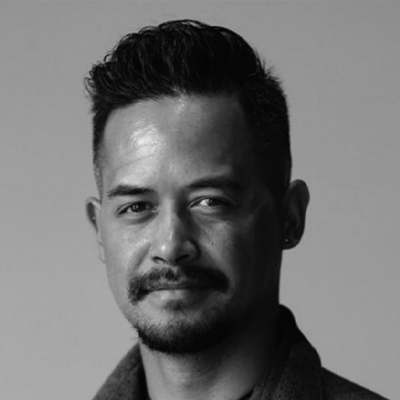
Whare Timu
Whare Timu is a world-renowned architectural practitioner known for his innovative approach to Aboriginal design and co-design practices. Deeply committed to integrating cultural narratives into built environments, Whare has led projects that pay homage to the history, values and aspirations of indigenous communities in Aotearoa, Australia, Asia and the wider Pacific. His portfolio includes acclaimed projects such as the First Nations Residence at the University of Technology Sydney, the Treaty of Waitangi Exhibition and the Te Manawataki o Te Papa Civic Square in Aotearoa, New Zealand. His expertise leads him to foster genuine partnerships with diverse stakeholder groups, ensuring that each project reflects the cultural significance of its location while taking contemporary needs into account. Renowned for his philosophy of “empathy in design”, Whare creates spaces that achieve their functional objectives and enhance the stories of the land and its inhabitants. His work continues to shape the field of architecture while advocating equitable, inclusive and culturally enriched design solutions.

Beatrice Galilee
Beatrice Galilee is the founder and executive director of The World Around, a New York-based nonprofit organization dedicated to amplifying impactful global design and architecture. She is the author of Radical Architecture of the Future, published by Phaidon in 2021, and between 2014-2019 served as the first curator of contemporary architecture and design at The Metropolitan Museum of Art. Beatrice is a visiting professor at Pratt Institute where she lectures on curating. Beatrice Galilee served as chief curator of the 2013 Lisbon Architecture Triennale; co-curator of 2011 Gwangju Design Biennale, co-curator of 2009 Shenzhen Hong Kong Bi-City Biennale of Architecture and Urbanism. Between 2010-2012 she launched and co-directed The Gopher Hole, an experimental exhibition and project space in London. With global experience of design, architecture, publishing, communications and brand-building, Beatrice provides cultural, design and architectural advisory support to architects, designers, developers and institutions.